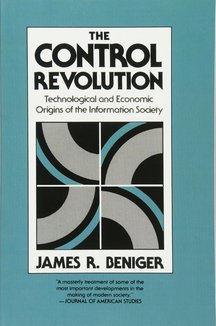Recommended Books

A Visit from the Goon Squad: Pulitzer Prize Winner
Author:
Jennifer Egan
ISBN 13:
978-0307477477
NATIONAL BESTSELLER • NATIONAL BOOK CRITICS CIRCLE WINNER • With music pulsing on every page, this startling, exhilarating novel of self-destruction and redemption “features characters about whom you come to care deeply as you watch them doing things they shouldn't, acting gloriously, infuriatingly human” ( The Chicago Tribune ) . One of the New York Times ’s 100 Best Books of the 21st Century • One of The Atlantic ’s Great American Novels of the Past 100 Years Bennie is an aging former punk rocker and record executive. Sasha is the passionate, troubled young woman he employs. Here Jennifer Egan brilliantly reveals their pasts, along with the inner lives of a host of other characters whose paths intersect with theirs. “Pitch perfect.... Darkly, rippingly funny.... Egan possesses a satirist’s eye and a romance novelist’s heart.” — The New York Times Book Review

The Control Revolution: Technological and Economic Origins of the Information Society
Author:
James R. Beniger
ISBN 13:
978-0674169869
Why do we find ourselves living in an Information Society? How did the collection, processing, and communication of information come to play an increasingly important role in advanced industrial countries relative to the roles of matter and energy? And why is this change recent―or is it? James Beniger traces the origin of the Information Society to major economic and business crises of the past century. In the United States, applications of steam power in the early 1800s brought a dramatic rise in the speed, volume, and complexity of industrial processes, making them difficult to control. Scores of problems arose: fatal train wrecks, misplacement of freight cars for months at a time, loss of shipments, inability to maintain high rates of inventory turnover. Inevitably the Industrial Revolution, with its ballooning use of energy to drive material processes, required a corresponding growth in the exploitation of information: the Control Revolution. Between the 1840s and the 1920s came most of the important information-processing and communication technologies still in use today: telegraphy, modern bureaucracy, rotary power printing, the postage stamp, paper money, typewriter, telephone, punch-card processing, motion pictures, radio, and television. Beniger shows that more recent developments in microprocessors, computers, and telecommunications are only a smooth continuation of this Control Revolution. Along the way he touches on many fascinating topics: why breakfast was invented, how trademarks came to be worth more than the companies that own them, why some employees wear uniforms, and whether time zones will always be necessary. The book is impressive not only for the breadth of its scholarship but also for the subtlety and force of its argument. It will be welcomed by sociologists, economists, historians of science and technology, and all curious in general.

The Four-Dimensional Human: Ways of Being in the Digital World
Author:
Laurence Scott
ISBN 13:
978-0434023110
You are a four-dimensional human. Each of us exists in three-dimensional, physical space. But, as a constellation of everyday digital phenomena rewires our lives, we are increasingly coaxed from the containment of our predigital selves into a wonderful and eerie fourth dimension, a world of ceaseless communication, instant information, and global connection. Our portals to this new world have been wedged open, and the silhouette of a figure is slowly taking shape. But what does it feel like to be four-dimensional? How do digital technologies influence the rhythms of our thoughts, the style and tilt of our consciousness? What new sensitivities and sensibilities are emerging with our exposure to the delights, sorrows, and anxieties of a networked world? And how do we live in public with these recoded private lives? Laurence Scott—hailed as a “New Generation Thinker” by the Arts and Humanities Research Council and the BBC—shows how this four-dimensional life is dramatically changing us by redefining our social lives and extending the limits of our presence in the world. Blending tech-philosophy with insights on everything from Seinfeld to the fall of Gaddafi, Scott stands with a rising generation of social critics hoping to understand our new reality. His virtuosic debut is a revelatory and original exploration of life in the digital age. SHORTLISTED FOR THE SAMUEL JOHNSON PRIZE FOR NON-FICTION 2015 WINNER OF THE JERWOOD PRIZE